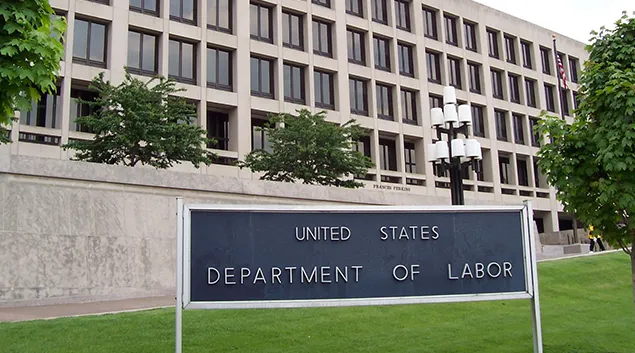
On Tuesday, a federal judge issued a preliminary injunction against a Department of Labor final rule that would extend overtime pay to about 4.2 million workers in the United States, including hundreds of thousands of healthcare workers. The rule was slated to take effect on Dec. 1.
Under the rule, workers with annual salaries of up to $47,476 would be eligible for overtime pay, which is almost double the current income threshold. The new threshold would include employees' regular annual salaries plus certain non-discretionary bonuses of up to 10 percent of that amount. The salary threshold would be automatically updated every three years based on changes in average wages.
The rule would apply to employees who work more than 40 hours per week. Employers would be required to pay qualifying employees 1.5 times a worker's usual salary for any work that is done over the 40-hour limit.
[Also: Home health workers entitled to same overtime, wages as hospital-based workers, court says]
Among healthcare workers, some say the rule most likely would affect medical and pharmacy technicians, medical and physical therapist assistants, nurses, and paramedics.
The DOL estimated that the rule would directly affect about 200,000 hospital workers and 300,000 non-hospital healthcare workers. The rule would temporarily exempt Medicaid-funded home healthcare providers and healthcare facilities with no more than 15 beds that treat individuals with disabilities. Such providers would have to implement the rule beginning March 17, 2019.
Judge Amos Mazzant of the Eastern District of Texas issued the preliminary injunction in response to a case that consolidated separate lawsuits from a coalition of business groups and about two dozen states. The cases alleged that the federal government overstepped its authority, in part by mandating the automatic salary threshold update every three years.
[Also: Direct-care workers get overtime and minimum wage protections]
In his decision, Mazzant wrote, "The State Plaintiffs have shown a likelihood of success on the merits." He added that by including the automatic updates in the rule, the DOL "exceeds its delegated authority (under the Fair Labor Standards Act) and ignores Congress' intent."
The injunction only temporarily suspends the regulation until Mazzant rules on the merits, but observers told the New York Times that the judge's ruling indicated he is likely to strike down the final rule.
The DOL, in a statement, said it is considering "all of (its) legal options," adding, "We strongly disagree with the decision by the court, which has the effect of delaying a fair day's pay for a long day's work for millions of hardworking Americans."
The U.S. Chamber of Commerce, which led one of the lawsuits, praised the ruling. Randy Johnson, a senior vice president, said in a statement, "If the overtime rule had taken effect, it would have resulted in significant new costs," reduced workplace flexibility, and caused work disruptions.
Published reports say a DOL appeal would go before the conservative U.S. Fifth Circuit Court of Appeals, where it likely faces a low chance of success.
Twitter: @JELagasse